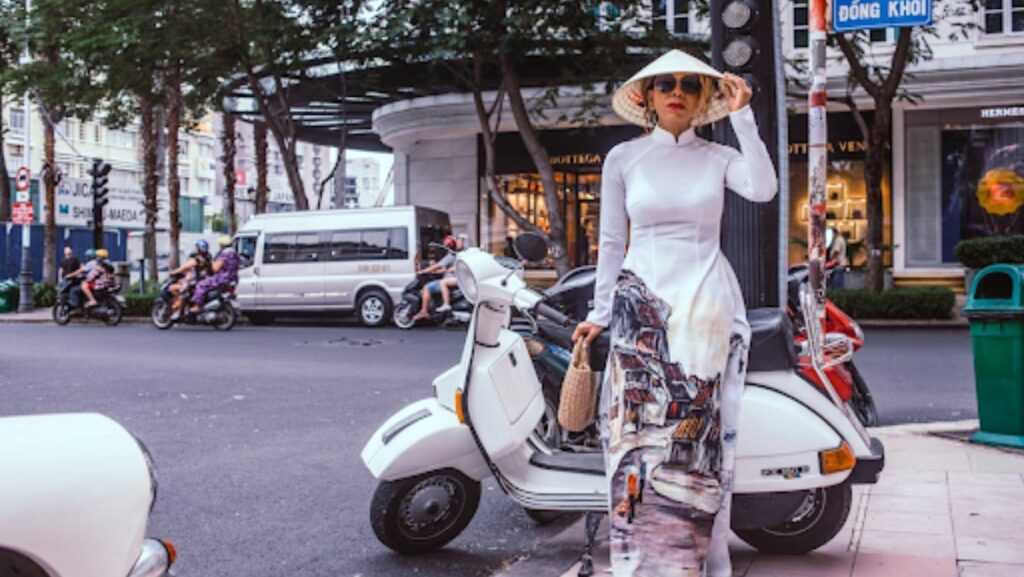The experience of relocating to another nation involves a mix of thrilling opportunities and difficult obstacles. More expats are choosing Vietnam as their destination because of its breathtaking natural beauty alongside its tasty food and friendly people. Preparation is key because cultural differences can create misunderstandings when navigating a new environment.
The deep cultural history of Vietnam influences everyday interactions with unique practices that newcomers may encounter as unfamiliar. Grasping the traditional practices of the region ensures an easier adaptation to the new environment. We will examine essential etiquette guidelines that will assist you in moving through Vietnamese society with assurance.
Learning cultural norms demonstrates respect and creates deeper connections between individuals. Anyone planning to be an expat living in Vietnam needs to invest time in learning Vietnamese traditions and values. People who learn and practice local customs experience increased connection to their communities.
Effective cultural adaptation depends on both dedication and open-mindedness.
What You Need to Know:
- Essential Vietnamese Greetings and Communication Tips
- Proper Etiquette for Socializing and Visiting Homes
- Business Customs and Professional Settings
- Dining Etiquette and Food Culture
- Religious and Cultural Sensitivities
Vietnamese Greetings and Communication
First impressions matter in Vietnamese culture. A majority of Vietnam’s population speaks Vietnamese and basic local salutations like xin chào (hello) demonstrate respect when used by expats.
Formal greetings among Vietnamese people consist of a handshake combined with a small head bow. Expats should understand cultural nuances which include the preference of some individuals to avoid handshakes with members of the opposite gender.
Vietnamese culture places the same level of importance on non-verbal communication methods.
- Demonstrate restraint in your behavior instead of showing excessive enthusiasm
- It is crucial to avoid physical contact beyond what is appropriate and particularly between members of different genders.
- Demonstrate respect when exchanging items by using both hands during the process.
The Vietnamese expression for thank you, cảm ơn, combined with a simple smile proves to be an effective tool for overcoming language barriers.
The Importance of “Saving Face”
The principle of “saving face” stands as a fundamental aspect of Vietnamese culture. This concept involves maintaining one’s self-respect and standing among peers. The concept holds significant importance in Vietnamese culture. Locals avoid public confrontations or causing embarrassment. Expats should maintain their composure and prevent any public shouting matches as well as avoid humiliating people openly.
To respect this cultural value:
- Resolve problems and correct errors through private discussions instead of public confrontations.
- Offer constructive feedback indirectly and with tact
- Practice patience during misunderstandings
Knowing how face plays a critical role in Vietnamese culture enables effective navigation through social and professional settings.
Visiting Vietnamese Homes
An invitation to enter a Vietnamese home stands as a significant privilege. Visitors to Vietnamese homes should take off their shoes before entering and must not step over or stand in front of ground-level altars found in homes and shops.
Gift-giving etiquette dictates that fruit, sweets, flowers or incense are suitable presents while handkerchiefs as well as black items and yellow flowers or chrysanthemums should be avoided since they are viewed as inappropriate gifts. Present your gift with both hands to show proper respect.
During your visit:
- Do not choose your seat yourself because the seating plan likely reflects hierarchical rules.
- Take tea or water when offered during your visit even if you don’t feel thirsty.
- Compliment the home modestly but sincerely
- Express gratitude before leaving
These actions reveal your appreciation for Vietnamese hospitality practices.
Business Etiquette and Professional Settings
Vietnamese professional relationships seamlessly blend contemporary business methods with cultural traditions. Vietnamese business culture places great importance on punctuality because showing up on time demonstrates respect for the schedules of others.
When conducting business:
- Exchange business cards with both hands
- During business interactions use individuals’ professional titles followed by their last names
- Build relationships before diving into business matters
- Respect hierarchical structures
Trust between business partners in Vietnam emerges from social engagements outside of professional settings as relationships develop gradually. Passing items with both hands or the right hand demonstrates proper respect in contrast to passing with only one hand or using the left hand.
Dress Code and Appearance
Public and professional environments in Vietnam expect individuals to dress modestly. Men and women should keep their shoulders and knees covered because this reflects Vietnam’s cultural and religious beliefs.
For daily wear in Vietnam:
- Business settings: Conservative attire is expected
- Casual settings require clothing that remains tidy and non-revealing at all times.
- At religious sites visitors must keep their shoulders and knees covered whether they are men or women.
Vietnamese people value neat grooming because it demonstrates self-respect and consideration for others.
Dining Etiquette
Meals are central to Vietnamese social life. Guests should wait for their host’s cue to begin eating and ensure their plates are empty to show respect for their meal.
When dining in Vietnam:
- The oldest person is usually served first
- Keep your rice bowl near your mouth instead of bending forward to eat.
- Start with small portions because refusing more food later could appear disrespectful to your hosts.
- Chopsticks should never be placed vertically in rice because it resembles a funeral incense stand.
Meals in group settings are served in a family-style format where shared dishes occupy the center of the table. Use the provided serving utensils to take small portions from the communal dishes.
Public Behavior and Social Norms
Expats must refrain from public physical displays because such behaviors violate local customs and are typically disapproved of in public settings.
Other important considerations include:
- Speaking in moderate tones rather than loudly
- Queuing patiently without pushing ahead
- People should offer their seats to older passengers on public transportation as a sign of respect.
- Asking permission before photographing people
When you understand social expectations you will find it easier to blend into everyday activities.
Religious and Cultural Sensitivities
The religious landscape of Vietnam features a mix of Buddhism, Confucianism, Taoism, and Catholicism. You must show respect towards religious sites and practices.
- People must take off their shoes before entering both pagodas and temples as well as certain homes.
- Secure permission before capturing images within religious buildings
- Dress modestly when visiting religious sites
Ancestor worship occupies a central role in Vietnamese culture as numerous homes display altars dedicated to this practice. Approach these sacred spaces with appreciation for what they provide.
Navigating Special Occasions
Throughout the year Vietnam hosts many festivals but Tết (Lunar New Year) remains the most important celebration. During these times:
- Expect businesses to shut down for temporary closures and even prolonged periods.
- Accept invitations to holiday celebrations when offered
- Bring appropriate gifts when invited to gatherings
Engaging with local celebrations provides deep cultural understanding and strengthens community relationships.
Building Successful Relationships
Successful expat living in Vietnam depends on developing authentic connections with local residents. Successful interactions during expat living demand patience along with cultural humility and a readiness to learn from mistakes.
Expats in Vietnam often observe their Vietnamese colleagues and friends serving as essential guides for understanding unfamiliar customs.
Final Thoughts
To adapt to Vietnamese life one must understand and honor cultural practices that might be different from their native country’s traditions. If you treat cultural differences in Vietnam with curiosity and respect your expat experience, it will be very rewarding.
Cultural adaptation requires continuous effort and adjustment. Long-term expatriates remain engaged in acquiring new cultural insights throughout their stay in Vietnam.
In Vietnam you will receive warmth and hospitality because of the respect you demonstrate towards local customs.

